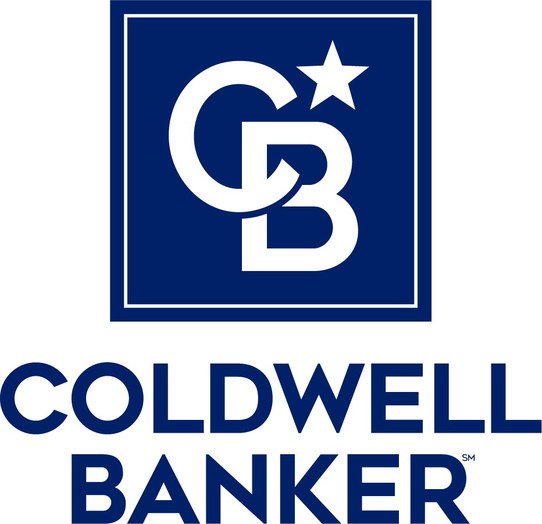

- August 2, 2023
- 10:00 am
- No Comments
Real Estate CRM: The Key of Real Estate Success in 2023
In the fast-paced and competitive world of real estate, staying organized, efficient, and maintaining strong client relationships are essential for success. That’s where a Real Estate Customer Relationship Management (CRM) system comes into play.
In this blog, we will explore the invaluable benefits of implementing a CRM in the real estate industry and how it can revolutionize the way you manage leads, listings, appointments, and communication with clients. Whether you’re a seasoned realtor or just starting your career, understanding the power of a CRM and its key features will give you a competitive edge and propel your business to new heights.
What is a Real Estate CRM?
A Customer Relationship Management (CRM) system in real estate refers to a specialized software tool designed to manage and streamline interactions and relationships with clients within the real estate industry. At its core, a CRM in real estate serves as a centralized database that stores comprehensive information about potential and existing clients, properties, and transactions. It is a powerful tool that assists real estate professionals in organizing, tracking, and analyzing their interactions with clients.
In the context of real estate, the primary focus of a CRM is to cultivate and maintain meaningful relationships with clients, including home buyers, sellers, investors, and other relevant stakeholders. A Real Estate CRM helps agents and brokers personalize their service by capturing essential details: contact info, preferences, communication, transactions. This fosters a tailored approach for each client, enhancing effectiveness.
Beyond managing client information, a real estate CRM offers features for team communication and collaboration. Company can ensure efficient teamwork, keeping everyone updated on clients’ needs.
Moreover, CRM systems in real estate provide valuable insights through data analysis. Tracking client interactions, property trends, and sales performance allows informed business decisions and effective marketing strategies. Companies that earn this competitive advantage can understand clientele and spot growth opportunities.
Key Features of Real Estate CRM
Lead Management
Lead management is a critical and indispensable feature of a Real Estate Customer Relationship Management (CRM) system. It entails the efficient handling of potential clients or leads throughout their journey from lead generation to eventual conversion. Real estate professionals rely on this feature to organize interactions with potential clients, leading to higher conversion rates and success.
With lead management in a real estate CRM, all lead-related information is consolidated into a centralized database. This includes data from various sources like website inquiries, social media interactions, email campaigns, and more. By having a comprehensive view of leads, agents can tailor their follow-up strategies to match each lead’s preferences and requirements.
As for its importance, statistics reveal that lead management significantly impacts a real estate professional’s success. According to a study, businesses that effectively manage their leads experience a 20% increase in sales opportunities. Furthermore, 78% of salespeople using a CRM system outperform those who don’t use one. These figures demonstrate the substantial advantages of lead management in a real estate CRM and how it directly correlates with higher conversion rates and overall business growth.
Contact Management
Contact management is a pivotal feature of a Real Estate CRM system, designed to streamline interactions with clients and prospects. Real estate professionals find empowerment in this feature, efficiently managing their contact database. It offers a comprehensive view of clients, leads, and relevant contacts, leading to enhanced communication, stronger relationships, and personalized experiences.
The core of contact management captures essential details for contacts: name, contact information, property preferences, communication history, and follow-up tasks. This consolidated data enables access to relevant information anytime, facilitating informed and tailored interactions.
Additionally, contact management in a real estate CRM includes categorization and segmentation. Agents can group contacts based on criteria like buyers, sellers, investors, or past clients.
Centralized Repository for Property Listings
A Centralized Repository for Property Listings serves as a central hub that stores all property listings in one accessible location. With this feature, real estate professionals can streamline the process of adding, updating, and sharing property information. It now becomes easier for them to manage their inventory efficiently and provide clients with accurate and up-to-date property details.
Through the Centralized Repository for Property Listings, real estate agents and brokers can input comprehensive information about each property. They can ensure that all the relevant data is readily available when discussing properties with clients or potential buyers. The CRM also allows for easy sorting of listings based on various criteria, like location, property type, price, and more.
According to industry experts, having a centralized system for property listings can lead to a 27% increase in agent productivity. Additionally, 86% of buyers find photos to be the most useful feature in property listings. Meanwhile, a CRM with a centralized repository makes it easier for agents to showcase high-quality images. As a results, companies can attract more potential buyers and increasing the likelihood of successful property sales.
Task and Appointment Management
Task and Appointment Management is a vital and indispensable feature of a Real Estate Customer Relationship Management (CRM) system. Real estate agents and brokers can assign and manage tasks related to client interactions, property showings, follow-ups, and marketing activities. The CRM provides reminders and notifications to ensure that critical deadlines and appointments are never missed. By then, professionals can provide timely and reliable service to clients.
Real estate professionals can prioritize tasks based on urgency, ensuring that they focus on the most critical activities first. They also categorize tasks by phone calls, emails, property research, or paperwork, making it easier to allocate resources effectively.
Appointment management is an integral part of this feature, allowing real estate professionals to schedule property viewings, client meetings seamlessly. The CRM can sync with external calendars, and automatically update schedules, reducing the risk of double-bookings or scheduling conflicts.
The importance of Task and Appointment Management in a real estate CRM cannot be overstated. According to industry surveys, businesses that effectively manage their tasks through a CRM system experience a 15% increase in productivity. Moreover, a well-organized appointment management system can lead to a 20% reduction in appointment no-shows.
Email Marketing and Communication
Email Marketing and Communication enables real estate professionals to establish effective and personalized communication with leads through email campaigns. This feature streamlines the process of creating targeted emails, allowing agents to nurture relationships and promote their property listings.
With Email Marketing and Communication, professionals can design and customize email templates for market insights, newsletters, or special offers. These templates can be tailored to specific client segments based on their preferences and interests, increasing engagement and response rates.
The CRM also facilitates automated email campaigns, enabling real estate professionals to set up scheduled and trigger-based emails. When a lead signs up, the CRM can automatically send a welcome email with relevant property listings and personalized messages. Similarly, after a property viewing, the CRM can automatically send a follow-up email to gather feedback and continue the conversation.
The importance of Email Marketing and Communication in a real estate CRM is significant. Targeted email campaigns can generate an average open rate of 18.31% and a click-through rate of 2.83% in this industry. Additionally, 80% of real estate professionals use email marketing to nurture leads, highlighting its widespread adoption and effectiveness.
How Realtors can Benefit from CRM
Increased Efficiency and Productivity
Realtors can significantly benefit from Real Estate CRM systems through increased efficiency and productivity. By centralizing client data, property listings, and communication, real estate professionals can access information quickly, streamline workflows, and prioritize tasks. This results in better time management, improved organization, and reduced administrative burden, allowing realtors to focus more on building relationships with clients and closing deals.
A real-life example is Redfin, a well-known real estate brokerage that utilizes CRM technology to enhance its operations. Redfin’s CRM enables its agents to manage client information, property data, and communication in one place. This centralized system optimizes their workflow, allowing them to respond promptly to clients’ inquiries, schedule showings efficiently, and ultimately provide exceptional service while handling a large volume of transactions.

Redfin Real Estate (source: Atlassian)
Enhanced Client Relationship Management
Realtors can benefit from CRM systems by enhancing client relationship management. CRM enables real estate professionals to have a centralized view of client data, interactions, and preferences, allowing for personalized and targeted communication. By leveraging this information, realtors can engage with clients more effectively, anticipate their needs, and provide tailored property recommendations. This level of personalized service fosters stronger relationships, builds trust, and increases client loyalty, ultimately leading to more repeat business and referrals.
A real-life example is Keller Williams, a prominent real estate company that utilizes Real Estate CRM to enhance client relationship management. Keller Williams’ CRM system allows its agents to store comprehensive client profiles, track communication history, and set reminders for follow-ups. With this data-driven approach, agents can maintain consistent and meaningful interactions with clients, resulting in long-term relationships and a steady stream of referrals from satisfied customers.

Keller Williams (source: Realtor.com)
Centralized Information and Data Insights
Realtors can benefit from CRM systems through centralized information and data insights. A CRM serves as a single repository for all client data, property listings, communication history, and transaction details. This centralized approach allows real estate professionals to access critical information quickly, make informed decisions, and improve overall efficiency. Moreover, CRM systems can generate valuable data insights, such as client preferences, market trends, and sales performance, which enable realtors to strategize effectively and optimize their business operations.
A real-life example is Coldwell Banker Real Estate, a well-established real estate brokerage that utilizes CRM technology to centralize information and gain valuable insights. With its CRM system, Coldwell Banker’s agents can access client data, past interactions, and property listings from one platform. This streamlines their processes, helps them understand client needs better, and empowers them to tailor their services accordingly. Additionally, the CRM’s data insights provide the company with a deeper understanding of market trends and client preferences, enabling them to stay ahead of the competition and provide superior service to their clients.

Coldwell Banker Real Estate (source: PR Newswire)
Streamlined Transaction Management
Realtors can benefit from CRM systems through streamlined transaction management. A CRM helps real estate professionals efficiently manage the entire transaction process, from listing to closing. It centralizes all transaction-related information, documents, and communication, ensuring that nothing gets lost or overlooked. Realtors can track the progress of each transaction, set reminders for important deadlines, and collaborate seamlessly with clients and other stakeholders. This streamlined approach saves time, reduces errors, and enhances overall productivity, allowing realtors to focus on providing excellent service to their clients.
A real-life example is Compass, a leading real estate company that utilizes CRM technology for streamlined transaction management. Compass’s CRM system allows its agents to keep track of all transaction-related data, including contracts, offers, and negotiation history. With all information centralized and accessible, agents can efficiently navigate the complexities of the transaction process, ensuring smooth and successful deals for their clients. The CRM’s streamlined transaction management capabilities have contributed to Compass’s reputation for delivering exceptional service and driving client satisfaction.

Compass (source: Malibu Real Estate)
Conclusion
In conclusion, a Real Estate CRM is an indispensable tool that empowers real estate professionals to enhance their efficiency, productivity, and client relationships. With key features such as lead management, contact management, centralized property listings, task and appointment management, email marketing, and data insights, realtors can effectively streamline their operations and stay ahead in the competitive market.
If you are looking for a reliable and effective solution for your real estate business, Surfline Media Marketing Agency has the best CRM for real estate . Our CRM Automation service is tailored to meet the unique needs of real estate professionals, providing a centralized platform to manage leads, clients, properties, appointments, and marketing campaigns.
_______________________

Surfline Media – Automate to Elevate
Our website: https://surflinemedia.com/
Contact us: https://surflinemedia.com/contact-us/
Phone number: +1 323-741-4482
Email: [email protected]






